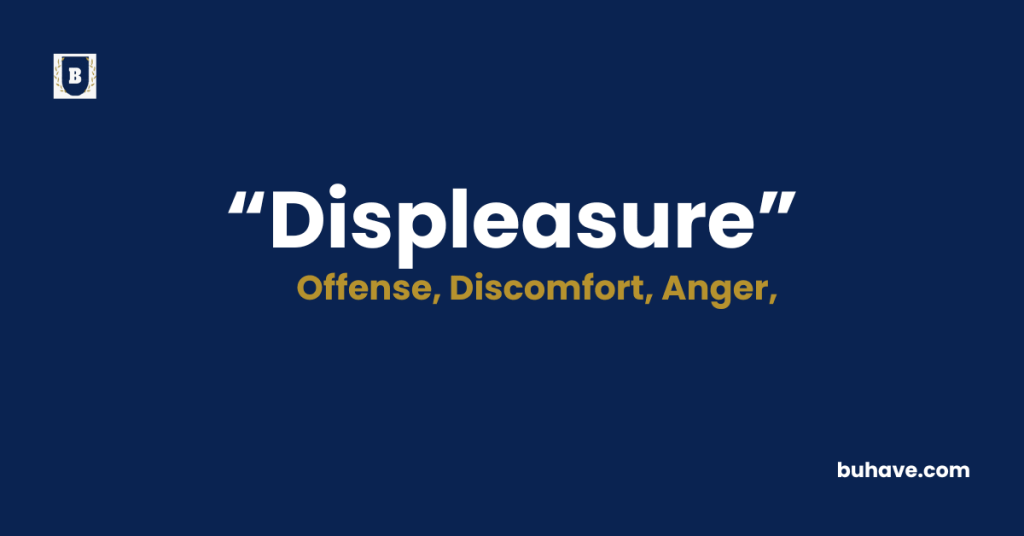The word ‘Displeasure’ (Noun) describes a feeling of annoyance, dissatisfaction, or disapproval, especially in response to something disagreeable or offensive. This guide explores everything about the word “Displeasure,” including its meaning, definition, usage, etymology, and related terms.
Displeasure Explained in Depth
A complete and detailed guide to the word ‘Displeasure’ including meaning, definition, examples, etymology, synonyms, and antonyms.
Meanings of Displeasure
‘Displeasure’ refers to an emotional reaction of being upset, dissatisfied, or unhappy with someone or something. It often involves disapproval or irritation.
Definition
‘Displeasure’ is defined as a feeling of being annoyed, offended, or dissatisfied with a situation, action, or behavior.
Etymology
The word “Displeasure” comes from Middle English displesure, from Old French, from desplaisir (“displease”), based on Latin roots where “dis-” means “opposite of” and “placere” means “to please.”
Example Sentences
- She couldn’t hide her displeasure at the rude comment.
- The boss expressed his displeasure with the team’s performance.
- His frown showed clear displeasure over the decision.
Displeasure Synonyms
- Discontent
- Dissatisfaction
- Disapproval
- Annoyance
- Irritation
- Resentment
- Disfavor
- Frustration
- Grievance
- Disgruntlement
Displeasure Antonyms
FAQs about Displeasure
Here are some frequently asked questions (FAQs) about the word “Displeasure”
- What does “displeasure” actually mean?
Displeasure is the feeling of annoyance, disapproval, or dissatisfaction toward something unpleasant or offensive. - Is displeasure the same as anger?
Not exactly. Displeasure is a milder form of emotional discomfort, while anger is typically more intense and aggressive. - How is displeasure shown?
Displeasure can be expressed through facial expressions, tone of voice, or verbal criticism. - Can displeasure be polite?
Yes, people often express displeasure in subtle or diplomatic ways, especially in professional or formal settings.

















